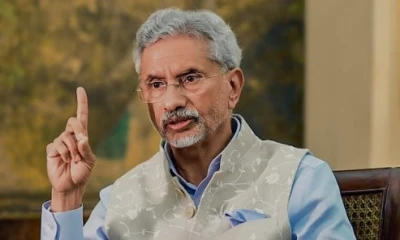The External Affairs Ministry has strongly rejected allegations levelled against Bharat regarding targeted killings in Pakistan, dismissing them as “false and malicious propaganda”. The response from Bharat’s EAM comes in the wake of a report by The Guardian, which cited Indian and Pakistani intelligence sources claiming that Bharat’s Research and Analysis Wing (RAW) had planned assassinations of terrorists on Pakistani soil.
The ministry refuted these claims, reiterating statements made earlier by External Affairs Minister Dr S Jaishankar, who asserted targeted killings in foreign territories do not align with the Indian Government’s policy. The ministry labelled the accusations as baseless and reiterated Bharat’s commitment to peaceful coexistence and adherence to international norms.
The report by The Guardian, based on conversations with intelligence officials from both Bharat and Pakistan, as well as documents provided by Pakistani investigators, alleges at least 20 targeted assassinations have been carried out since 2020 by unidentified assailants within Pakistan’s borders. These allegations emerge amidst accusations from the United States and Canada implicating Bharat in the attempted murder of Gurpatwant Singh Pannun, a Bharat-designated Khalistani terrorist in New York, as well as the demise of Khalistani terrorist Hardeep Singh Nijjar in Surrey last year.
The report stated Bharat’s refusal of the charges and asserted that “Delhi has implemented a policy of targeting those it considers hostile to Bharat”. Following the Pulwama attack by the Jaish-e-Mohammed in 2019, which claimed the lives of 40 Indian paramilitary personnel, Indian intelligence officers disclosed a shift in strategy by RAW.
According to one Indian intelligence operative, “After Pulwama, the approach changed to target the elements outside the country before they are able to launch an attack or create any disturbance.”
The operative highlighted the necessity of addressing the root cause of such attacks, particularly given that the safe havens of these terrorist elements were located in Pakistan.
Notably, many Pakistani terrorists featured on Bharat’s list of most wanted individuals have been discovered deceased under mysterious circumstances. These include Sheikh Jameel-ur-Rehman (United Jihad Council) and Habibullah (Lashkar-e-Taiba). The EAM had previously expressed Bharat’s desire for these terrorists to face the legal system by returning to Bharat.
The report by The Guardian highlights documentation of 20 fatalities in Pakistan attributed to unidentified attackers since 2020, with only two claims made by local militant groups. However, Pakistan has refrained from conducting public investigations or acknowledging the presence of these individuals within its borders, as noted by Delhi’s Institute for Conflict Management executive director Ajay Sahni.
Bharat’s accusations against Pakistan stretch back decades, accusing it of unleashing a violent terrorist insurgency in Jammu and Kashmir. Throughout the early 2000s, Bharat experienced a series of terrorist attacks orchestrated by Pakistan-based groups, including the 2006 Mumbai train blasts, which claimed over 160 lives, and the 2008 Mumbai bombings, resulting in the deaths of 172 individuals.

















